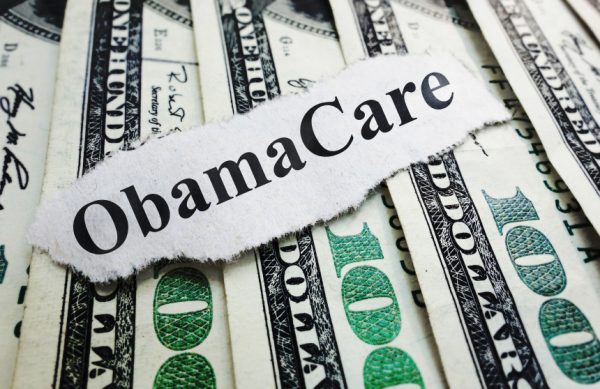 Parler
Parler Gab
Gab
- Senate Republicans have included the repeal of the ACA's individual mandate in their tax reform package—a long-standing GOP goal—to save $338 billion over a decade, which helps offset corporate tax cuts.
- Opponents argue the repeal could destabilize insurance markets, leading to 13 million fewer insured Americans by 2027 and higher premiums for those remaining in the system, while disproportionately benefiting corporations and high earners.
- Natural health proponents criticize the mandate for forcing them to pay for conventional insurance they don't use while also paying out-of-pocket for holistic treatments, framing repeal as a step toward medical autonomy.
- Some fiscal hawks oppose using the repeal's savings to mask the tax bill's $1.5 trillion deficit increase, calling it "budget gimmickry" rather than principled policy reform.
- Democrats accuse Republicans of sabotaging the ACA without transparency or a replacement plan, ensuring healthcare remains a contentious issue as the bill moves to House-Senate reconciliation.
A long-standing Republican goal
The individual mandate has been a lightning rod since the ACA's passage in 2010. Republicans argue it represents government overreach, forcing Americans to buy insurance they may not want or need. The Congressional Budget Office (CBO) estimates repealing the mandate would save $338 billion over a decade—money Republicans are using to help finance corporate tax cuts. However, the CBO also warns that eliminating the mandate could lead to 13 million fewer Americans having health insurance by 2027, destabilizing markets and increasing premiums for those who remain. Democrats, including former President Barack Obama, have framed the repeal as a backdoor effort to dismantle the ACA without offering a viable replacement. Critics of the mandate argue it forces Americans into a system that prioritizes pharmaceutical-driven, conventional medicine over holistic and preventive care. Many who rely on alternative medicine—such as herbal remedies, homeopathy or functional medicine—say they are effectively taxed twice: once for insurance they don't use and again out-of-pocket for the treatments they prefer. "The ACA's mandate penalizes those who take responsibility for their own health outside the system," said Dr. Jane Collins, a naturopathic physician and advocate for healthcare freedom. "Repealing it is a step toward medical autonomy, but the savings shouldn't just fund corporate tax breaks—they should be returned to the people."Fiscal conservatives question the trade-off
While the repeal aligns with Republican ideology, some fiscal hawks are uneasy about its inclusion in the tax bill. The projected $338 billion in savings helps offset the bill's $1.5 trillion deficit increase, but skeptics argue it masks the true cost of tax cuts. "This is budget gimmickry," said Maya Rodriguez, a policy analyst at the Committee for a Responsible Federal Budget. "If Republicans believe the mandate is bad policy, they should repeal it on its own merits—not as a way to hide the fiscal impact of tax cuts." The Senate's version of the tax bill now heads to reconciliation with the House, where differences must be resolved before final passage. The individual mandate repeal fulfills a longstanding GOP promise, but its broader implications remain uncertain. While it may provide short-term fiscal relief for the tax bill, the long-term effects on healthcare markets—and the Americans who depend on them—could be severe. As the debate continues, one thing is clear: The fight over healthcare in America is far from over and this latest maneuver ensures it will remain a central issue in the battles to come. Watch the video below that talks about the reality of Obamacare. This video is from Stefan Molyneux's channel on Brighteon.com.Sources include:
RT.com Reuters.com AlJazeera.com BrightU.ai Brighteon.comGovernments continue to obscure COVID-19 vaccine data amid rising concerns over excess deaths
By Patrick Lewis // Share
SNAP “reset”: USDA requires recipients to reapply for benefits
By Ava Grace // Share
EU demands accountability as Ukraine corruption scandal threatens aid
By Belle Carter // Share
“Bio-Veda” on BrightU: Building your future from concept to community
By Jacob Thomas // Share
Grape seed extract may reduce blood pressure naturally
By News Editors // Share
Governments continue to obscure COVID-19 vaccine data amid rising concerns over excess deaths
By patricklewis // Share
Tech giant Microsoft backs EXTINCTION with its support of carbon capture programs
By ramontomeydw // Share
Germany to resume arms exports to Israel despite repeated ceasefire violations
By isabelle // Share








